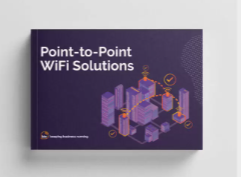More and more schools and other educational institutions are using technology at breakneck speed. To make technology an integral part of the classroom, schools are implementing a Bring Your Own Device (BYOD) policy. The adoption of BYOD has advantages for both schools and their students. It reduces hardware costs for schools, while increasing productivity and engagement for students. However, there are several network related issues that need to be considered.
Bring your own device
BYOD (Bring Your Own Device) is defined as a new workplace concept that empowers employees to use their personally owned device(s) to connect to their organisational WiFi networks and access work-related systems. Personal devices could include smartphones, laptop, tablets, and even wearables like smartwatches.
After COVID-19 pandemic, more organisations are inclined to allow remote and flexible working in any way possible as long as their employees can get the job done, making BYOD more popular than ever. Educational institutions are also gradually adopting this approach. Many schools have established BYOD programs and processes, and they are reaping the benefits of requiring students to bring personal devices to school.
Notably, supporting a technology network can cost up to a third of a school’s budget. Therefore, it is not surprising that school administrators are turning to BYOD as a way to help students use technology in the classroom at a more affordable cost.
One of the most important factors to ensure this new learning style runs smoothly is the wireless network. When students bring their personal devices to school, there are many ways it can cause poor network performance. Hence, it is important to consider how schools manage and use WiFi connections. A stable WiFi can boost student productivity by minimising Internet connection interruptions.
This is where WiFi 6 comes into play. WiFi 6, also known as 802.11ax, is the next generation wireless standard and is up to 4x faster than 802.11ac. More than speed, it also provides better performance in congested areas, energy savings, and better battery life for WiFi devices.
How can WiFi 6 solve BYOD issues?
More Secure
The BYOD environment is fraught with security risks. With so much data being exchanged at schools, it is becoming increasingly difficult to manage and protect. The fact that more personal mobile devices are added to the mix only makes this problem worse. Schools need to ensure that student data remains safe and secure, while keeping the internal network safe as well.
One of the main enhancements that WiFi 6 brings is that the latest security protocol (WPA3). This is required for WiFi devices to receive WiFi 6 certification from the WiFi Alliance. WPA3 features stronger user authentication and improved encryption tools. This authentication method makes passwords harder to crack by using a more complex method to establish a handshake with the WiFi network. These extra layers of security, along with stronger encryption, means that WiFi 6 has the most robust security options ever seen, changing things for the better without negatively impacting the experience user.
Faster Speeds
With students carrying around phones, tablets, and laptops, this can put a strain on network resources as all those different devices connect to each other at the same time. Unwanted device flows on any network can slow down a school’s WiFi network, creating network congestion and other wireless network problems.
Fortunately, WiFi 6 provides high performance in crowded environments. WiFi 6 access points use a variety of technologies to combat interference between devices and transmit packets more efficiently. This results in more resilient networks that continue to deliver fast speeds even as more devices connect to the network.
How KBR can help
For many organisations, the limitations of older networks are starting to surface, especially in the context of many new working and learning concepts. WiFi 6 represents an opportunity to improve productivity and data security.
With more than 35 years of experience, KBR has established itself as one of the most experienced WiFi providers for the education sector. Get in touch to speak to an expert about your network requirements – call us on 0191 492 1492 or email info@kbr.co.uk.

